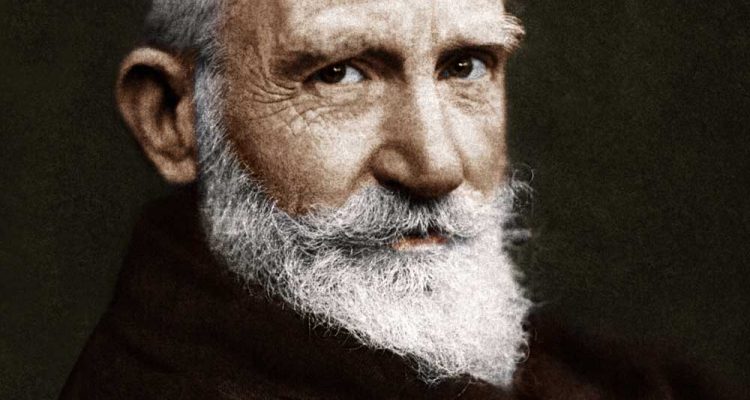There is a famous narrative that we all are familiar with; once a young, gorgeous actress approached a renowned writer and cooed in his ear – Wouldn’t it be marvelous if we got married and had a child with your brains and my beauty? To which the celebrated writer replied: “My dear that would be marvelous indeed, but on the flipside what if the child had your brains and my beauty.” The writer is none other than George Bernard Shaw, the famous Irish playwright and Nobel Prize winner. A hint of his views on women, love and marriage can be drawn from this analogy.

Bernard Shaw was practical and brutally straightforward when it came to marriage and relationships. Shaw wrote elaborately on the topic of marriage in his famous play Getting Married. In the preface of the play, he says that marriage is the subject on which most dangerous nonsense is talked about. He says: ‘if the mischief stopped at talking and thinking it would be bad enough; but it goes further, into disastrous anarchical action’. He believed in love but not in marriage; he rooted for love and union of two souls in love, but he ridiculed the need to warrant acceptance from others by signing some legal contracts and saying I do in the church.
He said: ‘There is no magic in marriage. If there were, married couples would never desire to separate. But they do.’ He goes on to say that the institution of marriage is unreasonable and inhuman to the point of utter abomination.
You would be astonished to know that George Bernard Shaw eventually married. Yes, the person who openly denounced the institution of marriage abandoned his strong beliefs and married the woman he loved. Shaw met his future wife, Charlotte Payne-Townshend through a mutual friend and he fell head over heels for her. Charlotte and Shaw were unconventional couples, they were constant companions, taking strolls in the middle of the night, repairing bicycles and pedaling around the country all day, or talking philosophy and religion, they were inseparable. They were made for each other; Charlotte proposed marriage to Shaw but he rejected it because he was poor and Charlotte was rich then and he thought a marriage between them would be inappropriate.
Charlottes’ unconditional love and intelligent companionship changed Shaw’s despise towards marriage. When Shaw met with an accident in 1898, Charlotte played a big role in his safe recovery. She devoted herself to taking care of Shaw and became his pillar of support and source of strength. The love and care received from Charlotte convinced Shaw to spend the rest of his life with her and to undertake marriage which he previously considered inhuman and insane.
Shaw was critical of the institution of marriage and he has never spoken in favour of marriage explicitly or in his speeches or writings. Although, the life of Bernard Shaw says otherwise, his marriage to Charlotte at the age of 42 says that his views on marriage drastically changed when he met his true love. In a nutshell, the life of Shaw teaches us that marriage is only right when you marry the right person.






















